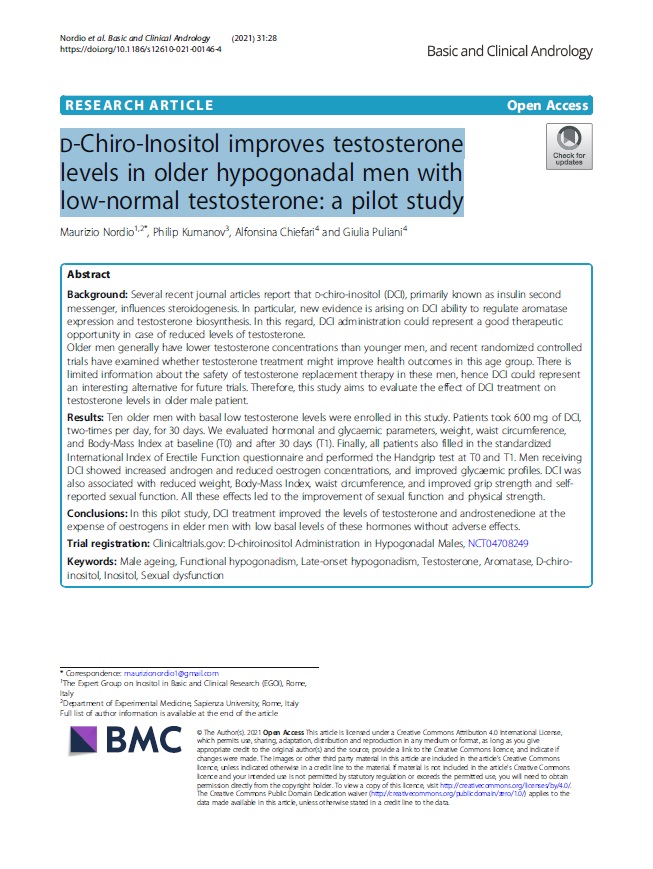Authors:
Maurizio Nordio, Philip Kumanov, Alfonsina Chiefari, Giulia Puliani
Background: Several recent journal articles report that D-chiro-inositol (DCI), primarily known as insulin second messenger, influences steroidogenesis. In particular, new evidence is arising on DCI ability to regulate aromatase expression and testosterone biosynthesis. In this regard, DCI administration could represent a good therapeutic opportunity in case of reduced levels of testosterone. Older men generally have lower testosterone concentrations than younger men, and recent randomized controlled trials have examined whether testosterone treatment might improve health outcomes in this age group. There is limited information about the safety of testosterone replacement therapy in these men, hence DCI could represent an interesting alternative for future trials. Therefore, this study aims to evaluate the effect of DCI treatment on testosterone levels in older male patient.
Results: Ten older men with basal low testosterone levels were enrolled in this study. Patients took 600 mg of DCI, two-times per day, for 30 days. We evaluated hormonal and glycaemic parameters, weight, waist circumference, and Body-Mass Index at baseline (T0) and after 30 days (T1). Finally, all patients also filled in the standardized International Index of Erectile Function questionnaire and performed the Handgrip test at T0 and T1. Men receiving DCI showed increased androgen and reduced oestrogen concentrations, and improved glycaemic profiles. DCI was also associated with reduced weight, Body-Mass Index, waist circumference, and improved grip strength and self-reported sexual function. All these effects led to the improvement of sexual function and physical strength.
Conclusions: In this pilot study, DCI treatment improved the levels of testosterone and androstenedione at the expense of oestrogens in elder men with low basal levels of these hormones without adverse effects.

